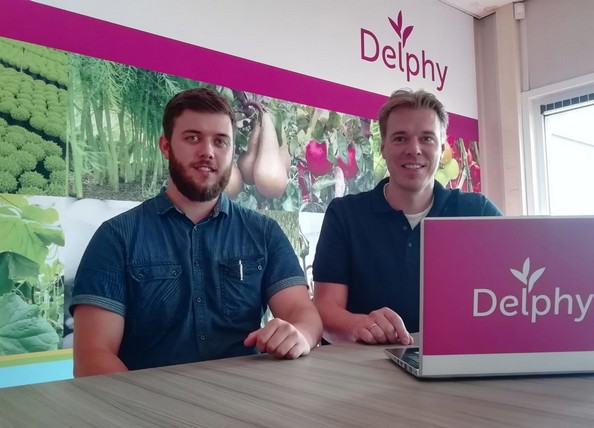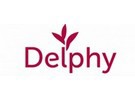Delphy has been approached by investors to take the primary sector in the Middle East to a higher level. “The primary sector itself wants to grow into a high-tech sector as quickly as possible. This requires appropriate customization, but it is also a great challenge”, says Gerjo Engbers, Manager Team Asia at Delphy.
Gerjo has an appropriate term for the steps the industry wants to take in the Middle East: 'frog-leaping'. He says that they prefer to make big frog leaps and want to reach the same level of knowledge as the Netherlands within one year.
The Netherlands is watched frequently. The idea often is: "What the Netherlands can do, we can do as well." "That is not always realistic," says Jitse Schöne, a cultivation specialist in Asia. Gerjo adds: “They often underestimate it. They think that once you have the hardware, production will start automatically.” However, that is not the case.
In order to get production going, people are needed that keep an eye on things. That is the task of Jitse as cultivation specialist. Normally - outside corona restrictions - he is on location for four weeks and in the Netherlands for a week and a half. In those four weeks he provides highly intensive cultivation guidance to a company. Jitse: "In those weeks I work forty to fifty hours a week over there to teach people how to cultivate." This intensive supervision is phased out after each growing season as the local team develops itself further.

Jitse Schöne and Gerjo Engbers
“A huge challenge”
Jitse calls the project a 'huge challenge'. The company where he helps has grown from five hectares to twenty hectares in three years. This significant growth entails new challenges. “After three years they know the crop care and cultivation works very well. Now the 'optimizing' part comes into play.” Jitse was busy optimizing, but due to the coronavirus that was stopped. Where normally he would spend four weeks over here, he has now already been in the Netherlands for eighteen weeks.
To be able to continue the works, Delphy is developing the Delphy Dashboard. Jitse explains what the Delphy Dashboard involves: “Through a connection with the climate computer, we can monitor what is happening on location. This allows us to provide advice via our Dashboard, draw up charts and transfer knowledge. That makes - together with the cultivation planning that we make - a complete overview. It is now even moving in the direction that we will soon be going autonomously on a large commercial scale, starting with the parameters misting, windows and screens."
Together the same goal
When you are working in another country, you have to adapt, according to Gerjo. “They want to have a large-scale production system that resembles a Dutch system and that is not always possible. That requires concessions and flexibility. When together you have the same goal, you can work it out together,” he says.
If you work well together, that will of course also yield results. Jitse says that production continues to increase every year and he sees that they dare to take more risks. "Two years ago in the Middle East they were still very dependent, but now I see that they come up with more ideas and make decisions more readily."
In terms of diseases and pests, in the Middle East they suffer from the same ones as in the Netherlands. But it is quite a challenge to combat the diseases. Jitse explains why: “In the Middle East they have less access to biological or chemical resources to protect the crop. With fewer options, we have to solve the same problems and that entails a lot of challenges.”
Tomato and bell pepper
The company that Jitse is helping is growing enormously. Now there is just one crop (tomatoes), this will quickly be expanded to other crops (peppers). Another 5 hectares are under construction, so there will be even more space for both crops in the future.
Delphy teamed up with the company when it was still a start-up. Now the company is growing and that requires a different approach.
From a green thumb in the greenhouse to green fingers on the computer
“It is coming to a point where we, in the Netherlands, can use digital systems to see what they are doing over there. The supervision will also mainly take place from the Netherlands. This gives you more control from one central place. That offers opportunities to watch and manage several companies at the same time. We are going from a green thumb in the greenhouse to green fingers on the computer. The green thumb will certainly remain necessary, but we are heading towards more data-driven support for companies,” says Jitse.
Data-driven
Delphy is going to work on a large commercial scale to put data-driven support into practice. “That is an investor’s wish. This investor really has a production focus. It gives them peace of mind when we can transfer our green knowledge through data and can establish it on location. They also say to us: 'if everything can be done automatically, we prefer to have everything done automatically'. In order to realize this, it is necessary to develop together, sometimes to fail, but above all to grow together. All these factors give us a lot of energy to continue to grow with this project,” conclude Jitse and Gerjo.
For more information: 
Delphy
www.delphy.nl
